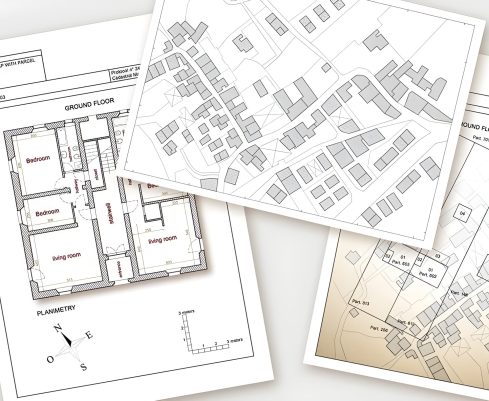
New Jersey Land Use and Planning
Land use and planning in New Jersey are governed by a complex network of laws, regulations, and policies that aim to balance the needs of economic development with the preservation of natural resources and the quality of life of the state's residents. Below is an overview of the key laws and regulations that govern land use and planning in New Jersey, as well as the services provided by our law firm in this field.
The New Jersey Municipal Land Use Law
The New Jersey Municipal Land Use Law (MLUL) is the primary statute that governs land use and planning in the state. The MLUL provides a framework for the regulation of land use at the municipal level, including the creation of land use plans, zoning ordinances, and other regulations. The MLUL also establishes a comprehensive process for the review and approval of development applications, including site plan and subdivision approvals.
Under the MLUL, municipalities have broad authority to regulate land use and development within their borders. Municipalities can adopt zoning ordinances that establish the permitted uses for each zoning district, as well as the dimensional and other requirements for development within those districts. Municipalities can also create master plans that guide future development and provide a basis for zoning decisions. The MLUL along with your local ordinances is the law that most people will interact with in situations such as variances, site plan applications, lot line adjustments, and subdivisions.
The New Jersey Site Remediation Reform Act
The New Jersey Site Remediation Reform Act (SRRA) is a state law that was enacted in 2009 to reform the state's site remediation program and promote the cleanup and redevelopment of contaminated properties. The SRRA establishes a licensed site remediation professional (LSRP) program, which allows private sector professionals to oversee the cleanup of contaminated sites, subject to oversight by the New Jersey Department of Environmental Protection (NJDEP).
Under the SRRA, the NJDEP retains oversight over the site remediation process, but the LSRP is responsible for preparing and implementing the remediation plan, and certifying that the site meets the applicable remediation standards. The SRRA also includes provisions to promote the redevelopment of contaminated sites
The New Jersey Highlands Water Protection and Planning Act
The New Jersey Highlands Water Protection and Planning Act (Highlands Act) is a state law that was enacted in 2004 to protect the natural resources and drinking water of the Highlands Region, a 860,000-acre area that covers parts of seven counties in the northern and central parts of the state. The Highlands Act establishes a regional planning process and requires municipalities within the Highlands Region to adopt land use ordinances that are consistent with the Highlands Regional Master Plan.
Under the Highlands Act, development within the Highlands Region is subject to additional review and regulation, including a mandatory Highlands Applicability Review (HAR) for certain types of development. The HAR process is designed to ensure that development within the Highlands Region is consistent with the goals of the Highlands Regional Master Plan and does not have an adverse impact on the natural resources and drinking water of the area.
The New Jersey Pinelands Protection Act
The New Jersey Pinelands Protection Act (Pinelands Act) is a state law that was enacted in 1979 to protect the unique ecological and cultural resources of the Pinelands National Reserve, a 1.1-million-acre area that covers parts of seven counties in southern New Jersey. The Pinelands Act establishes a comprehensive planning and regulatory framework for development within the Pinelands, including the creation of a Pinelands Comprehensive Management Plan (CMP).
Under the Pinelands Act, development within the Pinelands is subject to additional review and regulation, including a mandatory Pinelands Development Review (PDR) for certain types of development. The PDR process is designed to ensure that development within the Pinelands is consistent with the goals of the CMP and does not have an adverse impact on the ecological and cultural resources of the area.
If you require assistance with any aspect of the land use or planning and zoning laws in
New Jersey, please contact the attorneys at Ward, Shindle & Hall.
Land Use Articles
Property Survey and New Jersey Real Estate Transactions
Do you need a property survey when purchasing property in New Jersey? It it is important to know what property and land you are going...Continue reading→
CONDEMNATION – DO NOT SLEEP ON YOUR RIGHTS
Do not sleep on your rights, the rights you have relating to real property is extremely important. This is where consulting an attorney is...Continue reading→
Are You Really Paying Too Much In Property Taxes?
Property tax appeals are related to the assessed value of your property and any improvements thereon. In order to appeal a property assessment, the...Continue reading→
Can Your Neighbor Cut Down The Trees in Your Yard and Get Away With It?
In a recent case, the plaintiffs who sued their neighbors for removing bamboo from their property without permission were unable to recover damages. The New...Continue reading→
New Jersey Homeowners Must Pay Contractor’s Bill Despite Lack of Building Permits
A plaintiff construction company will be paid the outstanding balance of a home renovation project, despite allegations by the defendants that the company did not...Continue reading→
Do Not Build in Violation of Set Back Requirements BEFORE Receiving Approval
Sometimes, unlike the old adage, it is not better to ask for forgiveness rather than permission first. A New Jersey plaintiff who was denied a...Continue reading→






